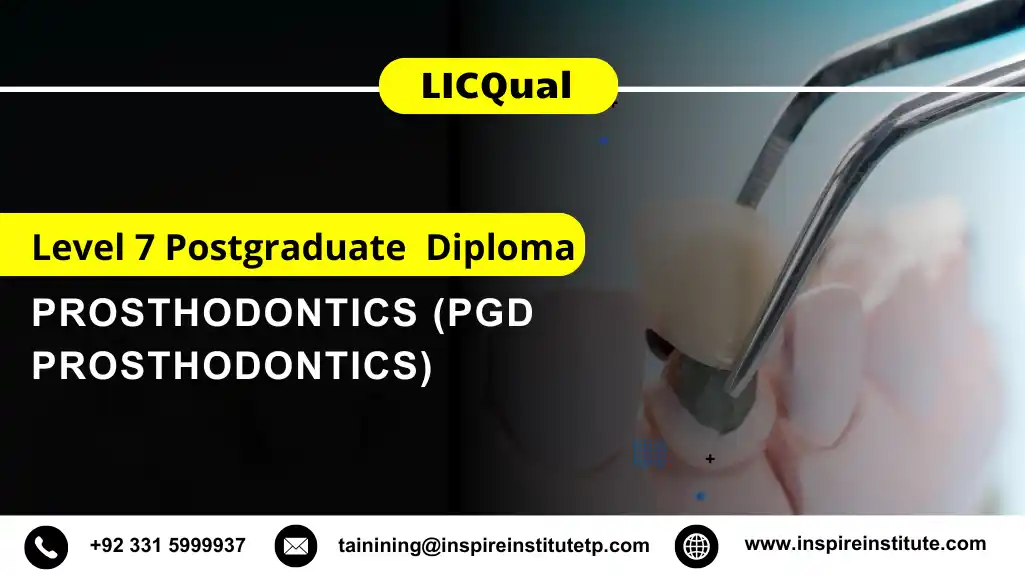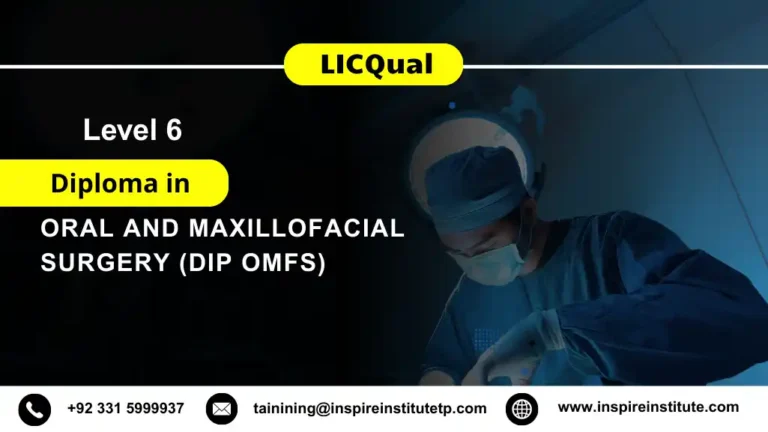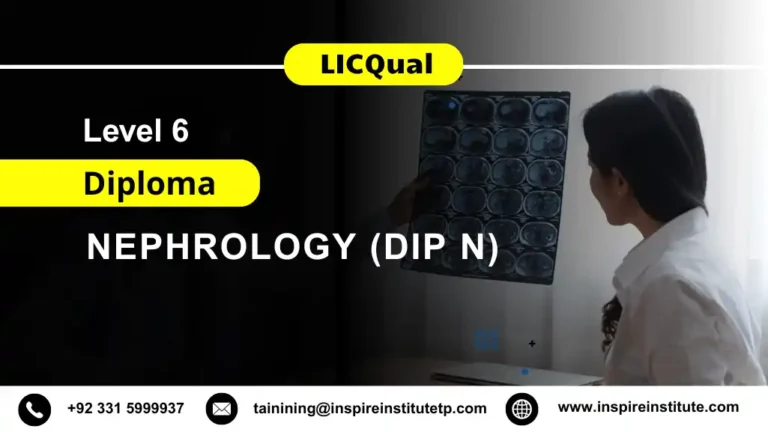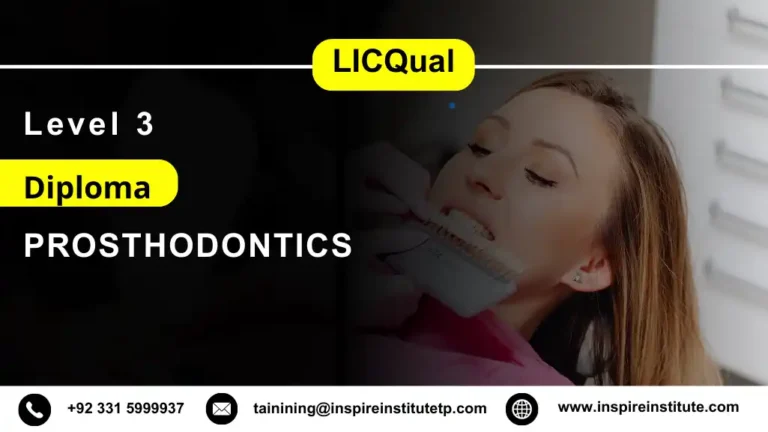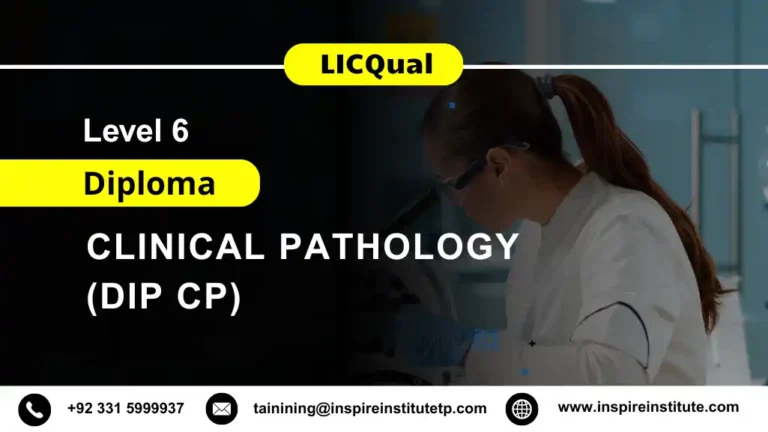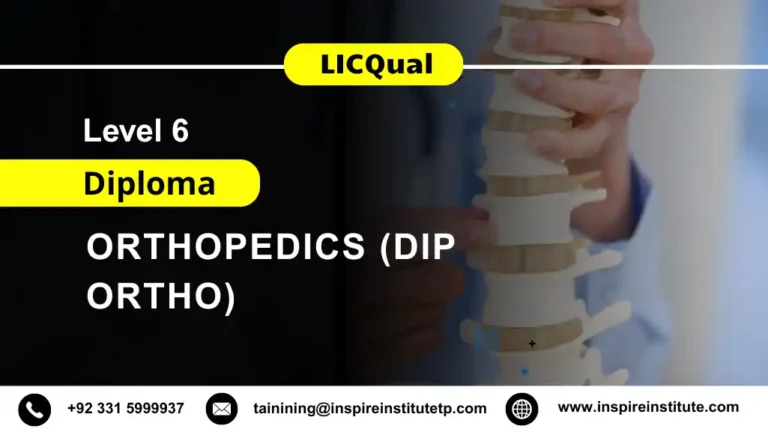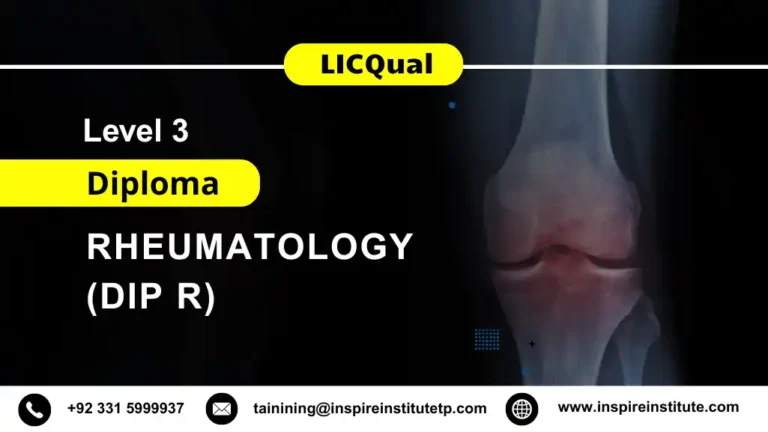LICQual Level 7 Postgraduate Diploma in Prosthodontics (PgD Prosthodontics)
The LICQual Level 7 Postgraduate Diploma in Prosthodontics (PgD Prosthodontics) is a highly specialised UK-based qualification designed for dental professionals seeking advanced expertise in prosthodontics. This programme equips practitioners with the knowledge, skills, and clinical competence required to deliver comprehensive restorative and prosthetic care, meeting the evolving demands of modern dental practice. Structured at Level 7, the course aligns with postgraduate standards, ensuring learners achieve a high level of professional mastery and practical application.
The PgD Prosthodontics programme emphasises evidence-based clinical practice, combining theoretical knowledge with hands-on learning. Participants explore advanced techniques in the restoration of missing teeth, full-mouth rehabilitation, implant-supported prostheses, and management of complex prosthodontic cases. The curriculum also covers patient assessment, treatment planning, material selection, and emerging technologies, enabling practitioners to offer personalised and effective dental solutions.
Delivered through a flexible, assignment-based format, the course allows busy dental professionals to study at their own pace without compromising professional commitments. LICQual ensures that the programme maintains rigorous academic standards while providing practical relevance to clinical practice. Learners benefit from expert guidance, interactive assignments, and continuous support, enhancing both their clinical and decision-making capabilities.
Upon completion, graduates of the LICQual Level 7 Postgraduate Diploma in Prosthodontics will be well-prepared to take on senior clinical roles, specialise in prosthodontic care, and contribute to the advancement of dental services. This qualification not only elevates professional credibility but also opens pathways to further postgraduate study or specialist registration, making it an ideal choice for dental practitioners aiming to achieve excellence in restorative and prosthetic dentistry.
Why Choose this Qualification
The LICQual Level 7 Postgraduate Diploma in Prosthodontics (PgD Prosthodontics) is designed to provide advanced clinical knowledge, practical skills, and professional credibility in restorative and prosthetic dentistry. This programme offers a flexible and comprehensive learning experience, ensuring that practitioners can enhance their expertise while continuing their professional practice.
Key Benefits of this Qualification:
- Advanced Clinical Competence: Gain in-depth knowledge and practical skills in complex prosthodontic procedures, including implant-supported restorations and full-mouth rehabilitation.
- Postgraduate Standard: Delivered at Level 7, meeting rigorous UK postgraduate academic and professional standards.
- Flexible Learning: Assignment-based format allows study alongside professional commitments, enabling learners to progress at their own pace.
- Evidence-Based Practice: Focuses on the latest research, clinical guidelines, and dental technologies to ensure high-quality patient care.
- Career Advancement: Opens opportunities for senior clinical roles, specialist practice, and further postgraduate study.
- Expert Support: Learn under the guidance of experienced tutors with access to comprehensive learning resources.
- Enhanced Decision-Making: Develop skills in patient assessment, treatment planning, and clinical decision-making.
- Professional Recognition: Recognised UK-based qualification that strengthens credibility and professional profile.
This qualification is ideal for dental practitioners who wish to specialise in prosthodontics, enhance their clinical expertise, and deliver superior patient care while achieving professional growth.
Course Overview
LICQual UK Awarding Body
Average Completion Time:
6-24 Months
Study Units: 6 Units
Evidence & Assignment Based
Mandatory Units
Who Should Take This Course
The LICQual Level 7 Postgraduate Diploma in Prosthodontics is designed for dental professionals who want to advance their clinical expertise and specialise in restorative and prosthetic dentistry. This programme is particularly suited for practitioners who aim to enhance their career prospects, deliver complex dental treatments, and achieve recognition at a postgraduate level.
This course is suitable for:
- Qualified Dentists: Professionals who have completed a recognised dental qualification and wish to specialise in prosthodontics.
- General Dental Practitioners (GDPs): Dentists seeking to expand their services to include advanced restorative and prosthetic treatments.
- Dental Specialists: Practitioners in related fields, such as periodontics or oral surgery, who want to broaden their clinical knowledge in prosthodontics.
- Dental Academics and Educators: Professionals aiming to strengthen their theoretical and clinical expertise to support teaching and research in dentistry.
- Dentists Seeking Career Progression: Practitioners aspiring to move into senior clinical positions, consultancy roles, or private practice.
- International Dental Professionals: Those seeking a UK-based postgraduate qualification to enhance their global career opportunities.
- Practitioners Focused on Patient Care: Dentists dedicated to improving treatment outcomes and offering advanced prosthodontic solutions to their patients.
This qualification is suitable for professionals at various stages of their career who wish to gain specialist knowledge, strengthen their clinical practice, and achieve professional recognition in the field of prosthodontics.
Course Benefits
The LICQual Level 7 Postgraduate Diploma in Prosthodontics offers a wealth of advantages for dental professionals aiming to advance their careers and clinical expertise. This programme is designed to combine academic rigour with practical application, ensuring that learners gain both theoretical understanding and hands-on proficiency in prosthodontics. By completing this qualification, practitioners can strengthen their professional credibility, expand their clinical services, and improve patient outcomes.
Key Benefits of the Course:
- Specialist Knowledge: Develop advanced expertise in restorative and prosthetic dentistry, including complex prosthodontic procedures.
- Career Advancement: Open opportunities for senior clinical positions, specialist practice, consultancy roles, and academic pathways.
- Flexible Learning: Benefit from an assignment-based structure that allows you to balance studies with professional and personal commitments.
- Evidence-Based Practice: Gain up-to-date knowledge of the latest research, clinical guidelines, and modern dental technologies.
- Practical Relevance: Learn treatment planning, patient management, and clinical decision-making skills directly applicable to practice.
- International Recognition: Achieve a UK-based postgraduate qualification that enhances global career opportunities.
- Professional Credibility: Strengthen your profile with a respected Level 7 diploma that reflects postgraduate standards of competence.
- Improved Patient Care: Enhance the quality of care you provide through advanced treatment approaches and innovative solutions.
- Expert Support: Receive guidance from experienced tutors and access comprehensive study resources.
This course not only enriches professional expertise but also positions graduates as highly skilled practitioners capable of delivering advanced prosthodontic care with confidence.
Eligibility Criteria
The LICQual Level 7 Postgraduate Diploma in Prosthodontics (PgD Prosthodontics) is designed for dental professionals who are committed to advancing their careers in restorative and prosthetic dentistry. To ensure participants can fully benefit from the programme, applicants are expected to meet certain educational, professional, and language requirements. These criteria maintain the high academic and clinical standards of the qualification while ensuring learners are well-prepared for postgraduate-level study.
Educational Background –Applicants are required to hold a recognised undergraduate degree in Dentistry, such as a Bachelor of Dental Surgery (BDS) or an equivalent international qualification. This academic foundation provides the theoretical knowledge and clinical understanding necessary to engage with the advanced study of prosthodontics. Professionals with alternative but relevant dental qualifications may also be considered if they can demonstrate substantial clinical practice and competency in dentistry. Holding a strong academic background is essential, as the Level 7 qualification aligns with postgraduate standards and demands advanced critical thinking, research, and evidence-based application.
Professional Experience – Relevant professional experience in dentistry is highly recommended for admission to this diploma. Applicants should ideally be currently practising or have recent experience in the field, particularly in areas such as restorative care, prosthetic rehabilitation, or general dental practice. Clinical exposure ensures that learners are able to relate theoretical knowledge to real-world cases, treatment planning, and patient care. Experience in managing patients, carrying out restorative procedures, and dealing with prosthetic cases will provide a significant advantage for mastering the advanced techniques taught in this programme.
Age Requirement – Learners must be 21 years or older at the time of enrollment.
Language Proficiency –Since the programme is delivered entirely in English, applicants must demonstrate strong proficiency in the language. They should be able to read and interpret complex academic materials, write detailed assignments to a postgraduate standard, and communicate effectively in clinical and academic environments. For non-native English speakers, proof of English language ability—such as an IELTS qualification or an equivalent recognised test—may be required to confirm readiness for study. Strong language skills are vital for engaging with academic content, conducting research, and interacting with patients and peers in professional contexts.
Technical Requirements Technical competence is essential for success in this postgraduate diploma. Applicants should already be proficient in routine dental procedures, including patient examinations, restorative treatments, and oral health management. Familiarity with prosthetic applications such as crowns, bridges, dentures, and implant-supported restorations will be particularly valuable. Learners are also expected to demonstrate critical thinking, evidence-based decision-making, and the ability to integrate new technologies into dental practice. Having strong practical and problem-solving skills ensures that participants can apply advanced prosthodontic techniques effectively in clinical settings.
Required Documents – Submission of a valid ID or passport and proof of educational qualifications is necessary for registration.
The Qualification Process
LICQual Level 7 Postgraduate Diploma in Prosthodontics (PgD Prosthodontics) follows a structured pathway to ensure learners gain comprehensive knowledge, practical skills, and professional competence in community oral healthcare.
Step 1: Self-Assessment
Learners review the entry requirements to confirm eligibility. Candidates with a background in dentistry, oral health, or public health are encouraged to apply.
Step 2: Registration
Complete the registration process by submitting required documents such as proof of qualifications, a valid ID, and payment of enrollment fees.
Step 3: Induction
An induction session is conducted to:
- Verify learner eligibility and documentation.
- Introduce study materials, learning outcomes, and assessment procedures.
Step 4: Learning and Evidence Submission
Learners complete assignments, case studies, and practical exercises demonstrating competence in public health dentistry, community oral health assessment, preventive strategies, and program planning.
Step 5: Feedback and Revision
Assessors review submitted evidence and provide constructive feedback. Learners can revise and resubmit work to meet all required standards.
Step 6: Competence Validation
Final submissions are evaluated to confirm that learners have met all theoretical and practical learning outcomes.
Step 7: Internal Quality Assurance (IQA)
The IQA team reviews the assessment process to ensure accuracy, fairness, and compliance with international standards.
Step 8: External Verification (EQA)
External verifiers validate the authenticity and quality of learner achievements.
Step 9: Certification
Upon successful verification, learners are awarded the LICQual Level 7 Postgraduate Diploma in Prosthodontics (PgD Prosthodontics)
LICQual Level 7 Postgraduate Diploma in Prosthodontics (PgD Prosthodontics), demonstrating advanced proficiency in community oral healthcare and preparing them for professional growth in dental public health, preventive dentistry, and healthcare policy.

